Reading about the climate crisis can be overwhelming.
If you’re fairly new to the subject, it’s helpful to learn about climate science and what it tells us about the consequences of human-caused climate change. This includes consequences like heat waves, droughts, floods, wildfires, hurricances, and so on.
But at a certain point, you may find yourself looking for solutions.
The books included in this Climate Solutions Reading List provide an introduction to many of the most popular proposed and implemented solutions to the climate crisis. These are not the only solutions, and these are not the only books about these solutions. However, this list can be a good starting point for your journey into the wonderful world of climate solutions.
Book Inclusion Criteria
We selected books for this list based on the following criteria: accuracy, significance, engagement, and popularity. For more information on our book inclusion criteria, please visit our About page.
Do you know of a book that should be on this list? Let us know!
Climate Solutions Books

All We Can Save edited by Ayana Elizabeth Johnson and Katharine Wilkinson
All We Can Save illuminates the expertise and insights of dozens of diverse women leading on climate in the United States—scientists, journalists, farmers, lawyers, teachers, activists, innovators, wonks, and designers, across generations, geographies, and race—and aims to advance a more representative, nuanced, and solution-oriented public conversation on the climate crisis. These women offer a spectrum of ideas and insights for how we can rapidly, radically reshape society.

What If We Get It Right by Ayana Elizabeth Johnson
Through clear-eyed essays and vibrant conversations, infused with data, poetry, and art, Ayana Elizabeth Johnson guides us through solutions and possibilities at the nexus of science, policy, culture, and justice. Visionary farmers and financiers, architects and advocates, help us conjure a flourishing future, one worth the effort it will take—from every one of us, with whatever we have to offer—to create.
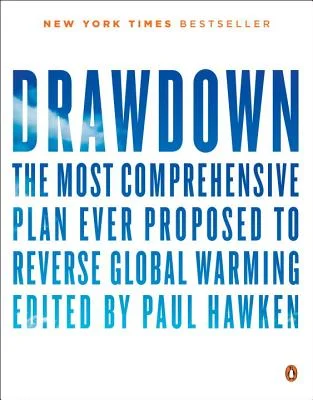
Drawdown edited by Paul Hawken
In the face of widespread fear and apathy, an international coalition of researchers, professionals, and scientists have come together to offer a set of realistic and bold solutions to climate change. One hundred techniques and practices are described here—some are well known; some you may have never heard of. They range from clean energy to educating girls in lower-income countries to land use practices that pull carbon out of the air. The solutions exist, are economically viable, and communities throughout the world are currently enacting them with skill and determination. If deployed collectively on a global scale over the next thirty years, they represent a credible path forward, not just to slow the earth’s warming but to reach drawdown, that point in time when greenhouse gases in the atmosphere peak and begin to decline. These measures promise cascading benefits to human health, security, prosperity, and well-being—giving us every reason to see this planetary crisis as an opportunity to create a just and livable world.

The Climate Book edited by Greta Thunberg
In The Climate Book, Greta Thunberg has gathered the wisdom of over one hundred experts—geophysicists, oceanographers and meteorologists; engineers, economists and mathematicians; historians, philosophers and Indigenous leaders—to equip us all with the knowledge we need to combat climate disaster. Alongside them, she shares her own stories of demonstrating and uncovering greenwashing around the world, revealing how much we have been kept in the dark. This is one of our biggest challenges, she shows, but also our greatest source of hope. Once we are given the full picture, how can we not act? And if a schoolchild’s strike could ignite a global protest, what could we do collectively if we tried?
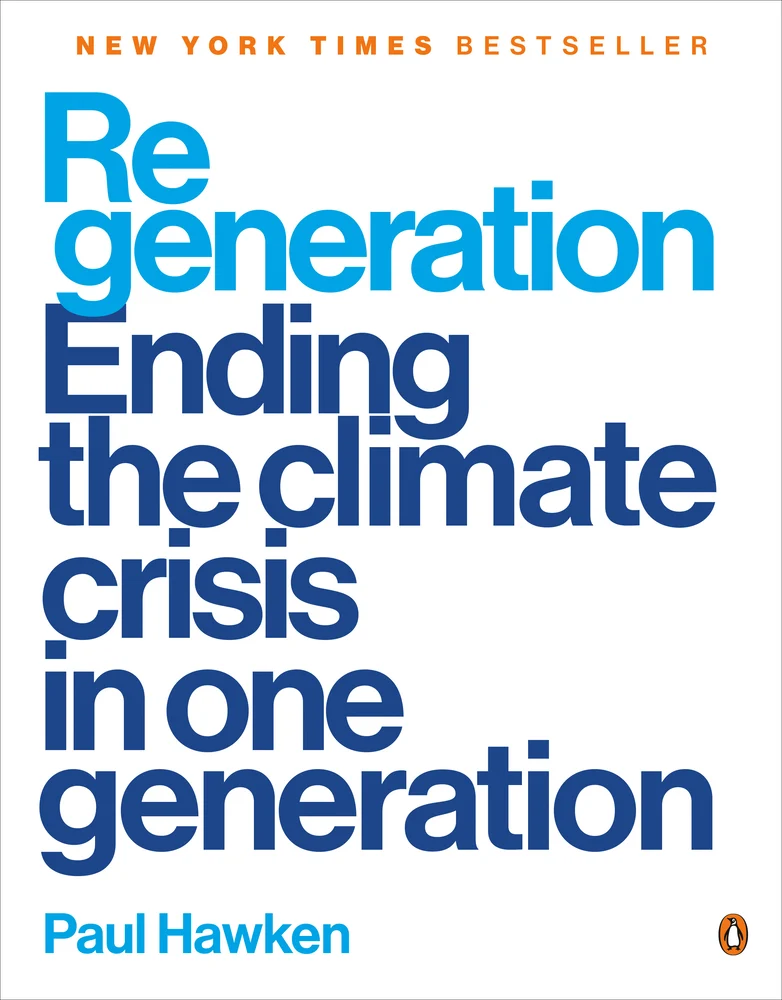
Regeneration: Ending the Climate Crisis by Paul Hawkin
Regeneration describes how an inclusive movement can engage the majority of humanity to save the world from the threat of global warming, with climate solutions that directly serve our children, the poor, and the excluded. This means we must address current human needs, not future existential threats, real as they are, with initiatives that include but go well beyond solar, electric vehicles, and tree planting to include such solutions as the fifteen-minute city, bioregions, azolla fern, food localization, fire ecology, decommodification, forests as farms, and the number one solution for the world: electrifying everything.
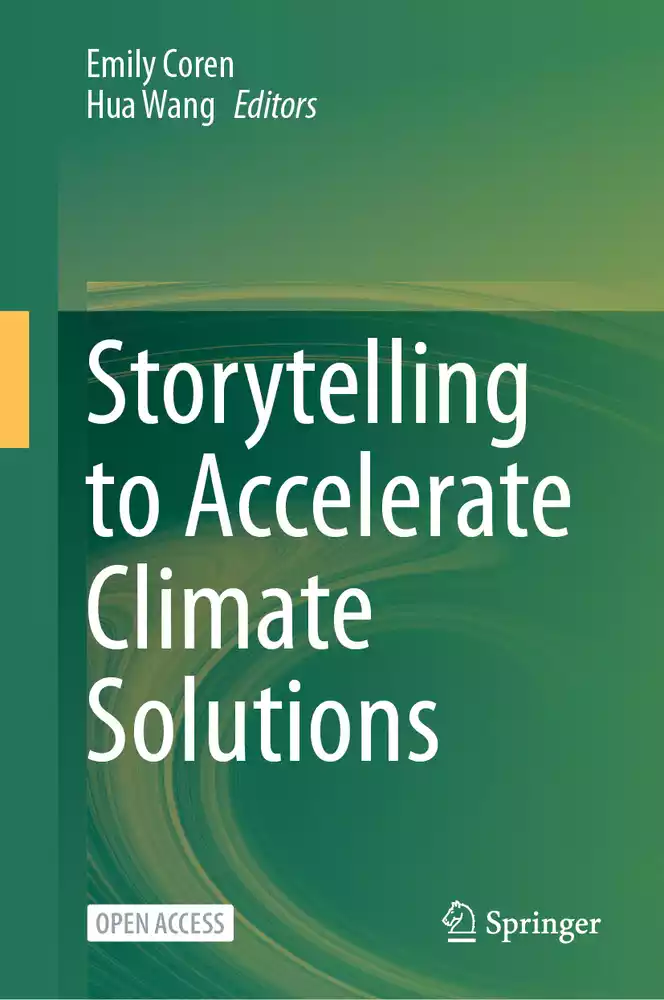
Storytelling to Accelerate Climate Solutions edited by Emily Coren and Hua Wang
The climate is changing faster than our cultural practices are adapting to it. This Open Access volume, co-edited by Emily Coren (a science communicator) and Hua Wang (a communication scientist), presents a survey of the latest in agency-focused climate storytelling. Together, practitioners and scholars across different fields shared their knowledge, experience, and insight about how stories can be designed and told to engage, enable, and empower individuals and communities in climate communication and action. You will learn a wide range of narrative strategies and exemplary applications of climate storytelling in terms of professional practices (e.g., education, literature, journalism, popular media), genres and formats (e.g., drama, comedy, fiction), media platforms (e.g., television, radio, mobile), and communication modalities (e.g., text, visual, audio, multisensory).
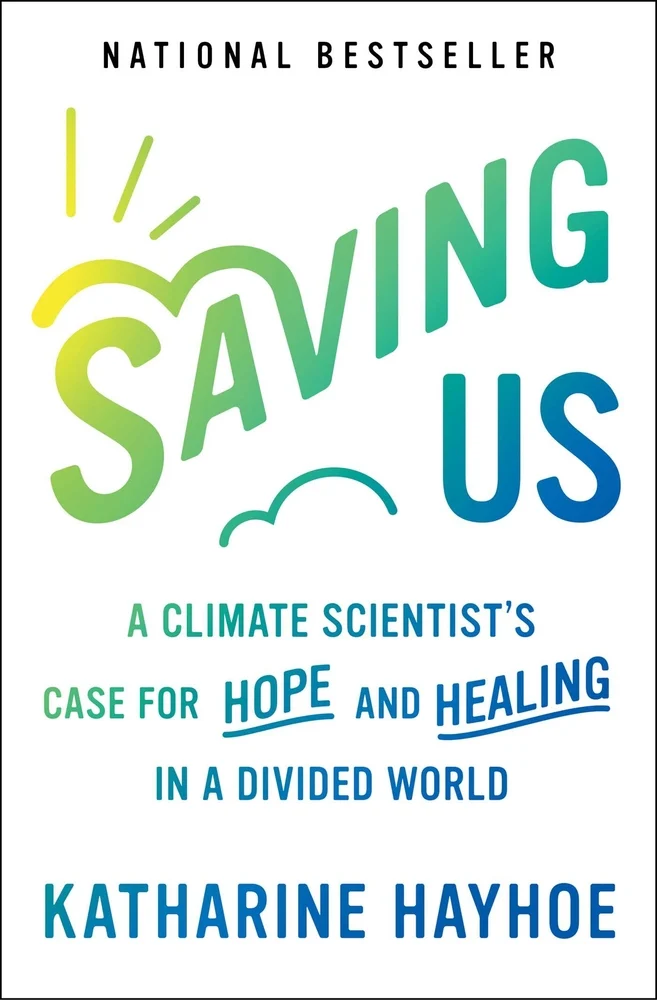
Saving Us: A Climate Scientist’s Case for Hope by Katharine Hayhoe
In Saving Us, climate scientist Katharine Hayhoe argues that when it comes to changing hearts and minds, facts are only one part of the equation. We need to find shared values in order to connect our unique identities to collective action. This is not another doomsday narrative about a planet on fire. It is a multilayered look at science, faith, and human psychology, from an icon in her field—recently named chief scientist at The Nature Conservancy.
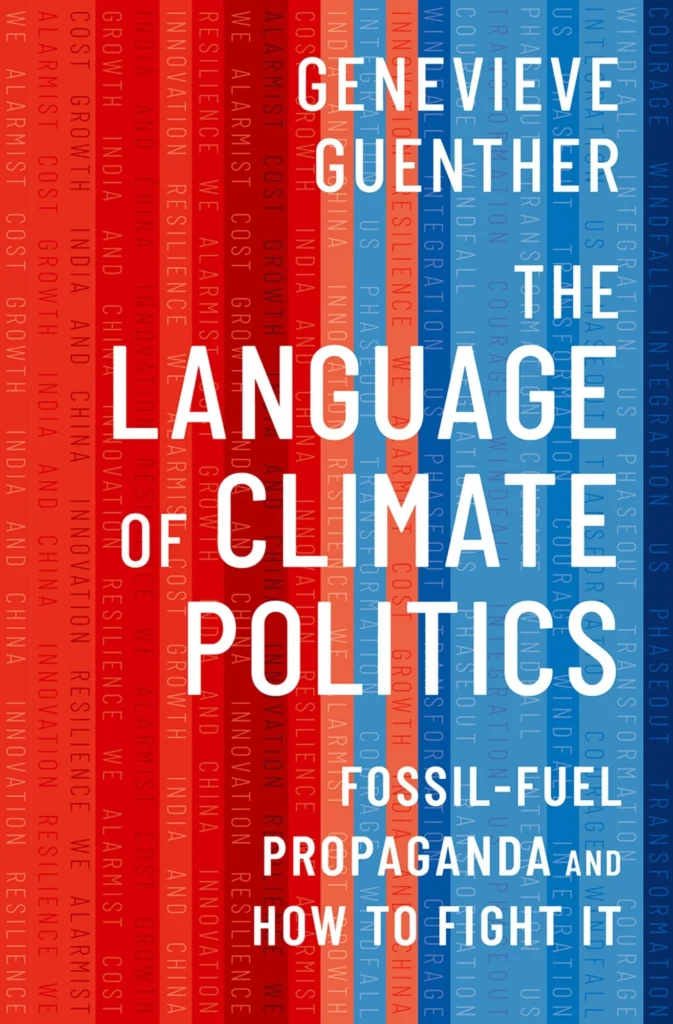
The Language of Climate Politics: Fossil Fuel Propaganda and How To Fight It by Genevieve Guenther
In an illuminating analysis, Dr. Genevieve Guenther shows that the climate debate is not, in fact, neatly polarized, with Republicans obstructing climate action and Democrats advancing climate solutions. Partisans on the right and the left often repeat the same fossil-fuel talking points, and this repetition produces a centrist consensus upholding the status quo, even as global heating accelerates.
Weaving this analysis through fascinating critical histories of the terms that dominate the language of climate politics–the words we, alarmist, cost, growth, “India and China,” innovation, and resilience–Dr. Guenther shows how this consensus is established. Fossil-fuel interests weaponize the discourses of science, economics, and activism, co-opting and twisting climate language to help greenwash their plans for ongoing extraction. But all too often climate scientists, economists, and even advocates will unwittingly echo the false and dangerous assumptions of their supposed political opponents. This apparent agreement between foes, filtered through the news media, not only influences our common-sense yet mistaken views about the climate crisis but also enables powerful decisionmakers to justify the corporate and policy actions that threaten us all. Revealing this dynamic, Guenther shows how to transform it.
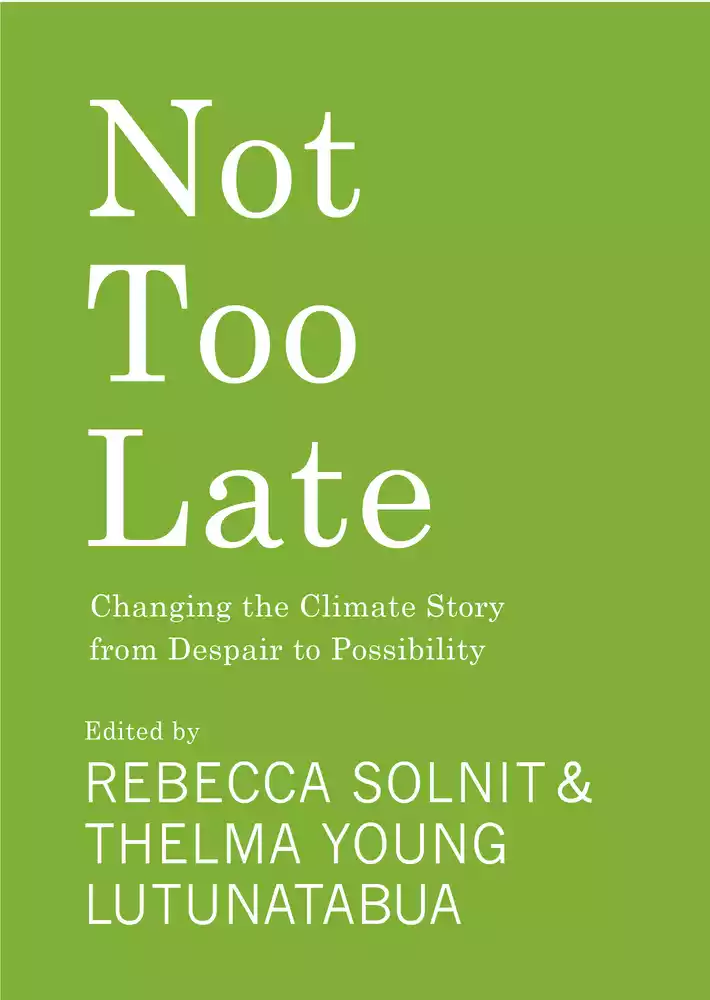
Not Too Late: Changing the Climate Story from Despair to Possibility edited by Rebecca Solnit and Thelma Young Lutunatabua
Not Too Late is the book for anyone who is despondent, defeatist, or unsure about climate change and seeking answers. As the contributors to this volume make clear, the future will be decided by whether we act in the present–and we must act to counter institutional inertia, fossil fuel interests, and political obduracy. These dispatches from the climate movement around the world feature the voices of organizers like Guam-based lawyer and writer Julian Aguon; climate scientists like Dr. Jacquelyn Gill and Dr. Edward Carr; poets like Marshall Islands activist Kathy Jetnil-Kijner; and longtime organizers like The Tyranny of Oil author Antonia Juhasz. Guided by Rebecca Solnit’s typical clear-eyed wisdom and enriched by photographs and quotes, Not Too Late leads readers from discouragement to possibilities, from climate despair to climate hope.
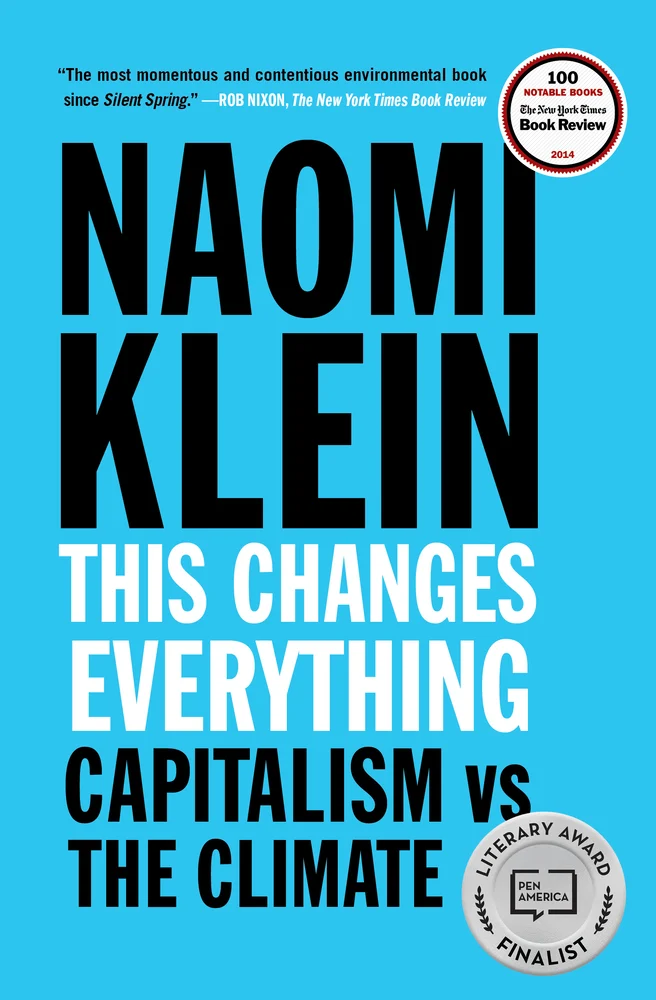
This Changes Everything: Capitalism vs the Climate by Naomi Klein
In This Changes Everything Naomi Klein argues that climate change isn’t just another issue to be neatly filed between taxes and health care. It’s an alarm that calls us to fix an economic system that is already failing us in many ways. Klein meticulously builds the case for how massively reducing our greenhouse emissions is our best chance to simultaneously reduce gaping inequalities, re-imagine our broken democracies, and rebuild our gutted local economies. She exposes the ideological desperation of the climate-change deniers, the messianic delusions of the would-be geoengineers, and the tragic defeatism of too many mainstream green initiatives. And she demonstrates precisely why the market has not—and cannot—fix the climate crisis but will instead make things worse, with ever more extreme and ecologically damaging extraction methods, accompanied by rampant disaster capitalism.

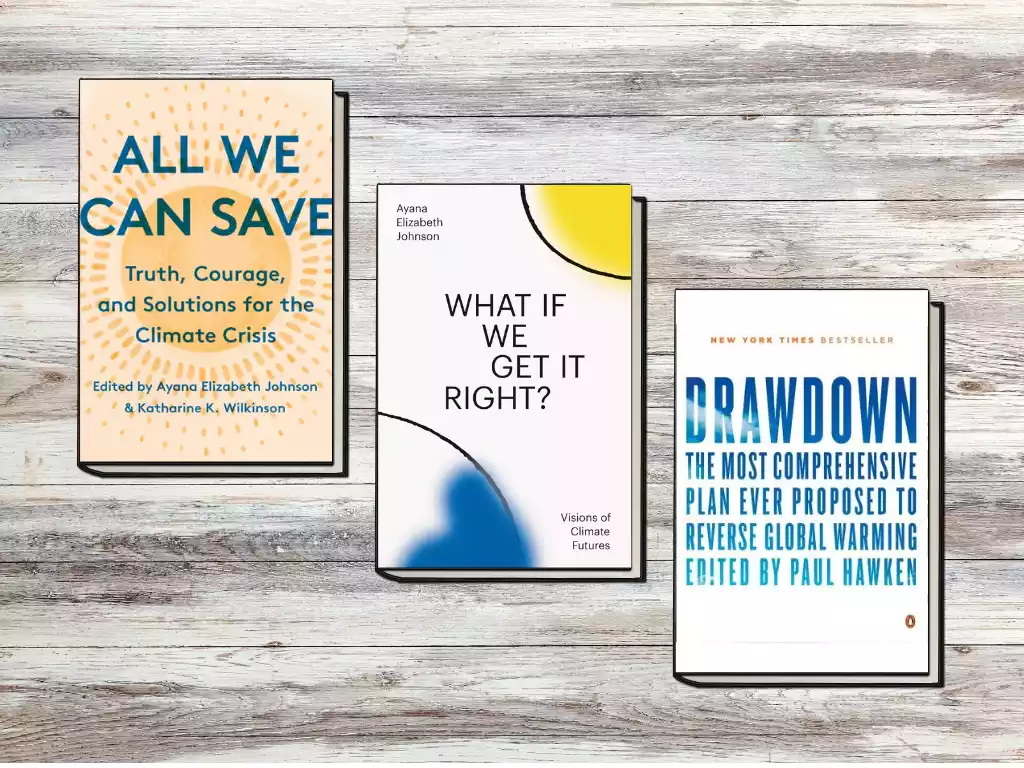

Leave a Reply
You must be logged in to post a comment.